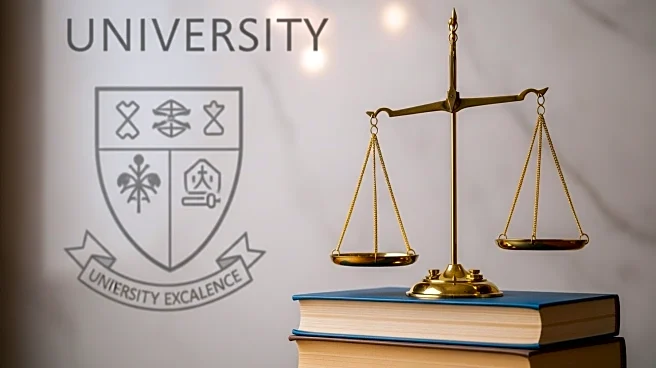What's Happening?
Santa Clara University School of Law has announced the introduction of the PLEDGE Scholarship, aimed at alleviating financial pressures for incoming students. This initiative comes in response to the annual federal loan cap of $50,000 for professional degree students, a measure included in President Trump's budget bill. The scholarship guarantees $16,000 per year to each full-time student, allowing them to cover the remainder of their tuition with federal student loans. Dean Michael Kaufman emphasized the scholarship's role in fostering a more equitable society by supporting students in pursuing impactful legal careers.
Why It's Important?
The PLEDGE Scholarship represents a significant shift in how law schools can support students financially, especially in light of new federal loan restrictions. By providing substantial financial aid, Santa Clara Law is positioning itself as a leader in addressing the economic barriers that often deter students from pursuing legal education. This move could influence other institutions to adopt similar strategies, potentially reshaping the landscape of legal education funding. Students stand to benefit from reduced financial burdens, enabling them to focus on their studies and future careers without the looming pressure of debt.
What's Next?
As the PLEDGE Scholarship is implemented, Santa Clara University School of Law may observe increased enrollment and diversity among its student body. Other law schools might follow suit, introducing similar scholarships to remain competitive and attract top talent. The broader impact on legal education funding could prompt discussions among policymakers and educational leaders about the sustainability and fairness of current loan structures. Stakeholders will likely monitor the outcomes of this initiative to assess its effectiveness and potential for replication.
Beyond the Headlines
The introduction of the PLEDGE Scholarship raises questions about the long-term implications for legal education and the profession. By reducing financial barriers, the scholarship may contribute to a more diverse and inclusive legal community, reflecting broader societal changes. Additionally, it highlights the ongoing debate about the role of federal loan policies in shaping educational opportunities and career paths. The initiative could spark conversations about the ethical responsibilities of educational institutions in supporting their students beyond traditional financial aid models.








